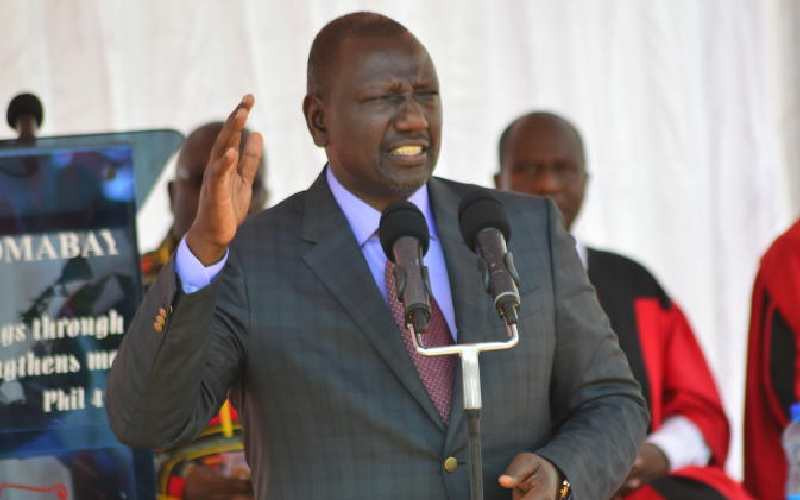×
The Standard e-Paper
Stay Informed, Even Offline

President William Ruto at AIC Homa Bay on October 2, 2022. [Michael Mute, Standard]
The thanksgiving prayers at State House to bless the incoming administration elicited a robust debate on whether our governments should maintain a wall between state and religious affairs. Considering the president and his deputy have vowed to conduct more religious services at State House, it is safe to assume we have not heard the last of this debate.